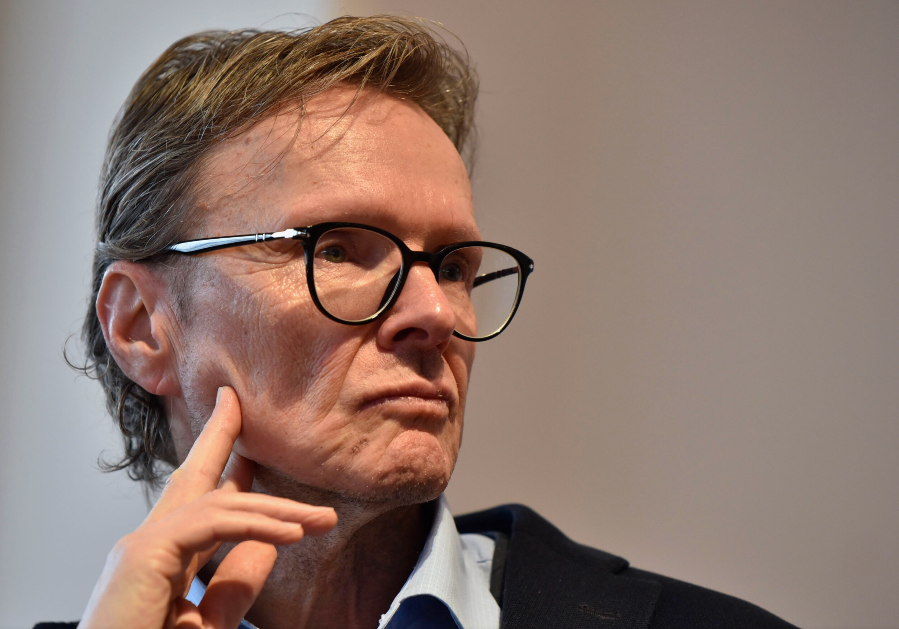The President of the Supreme Court, Miodrag Đorđević, has once again come under the scrutiny of a critical public. This time for his statements made on Radio-Television Slovenia. The public was alarmed by his equation of judges with power. As some were quick to point out, judges are merely representatives of one branch of the government, not the government itself.
The public was particularly upset by the following statement: “We are the judiciary, we are the authority, and we always act with dignity, respect and consideration for our role in society.” The statement would have sounded different if Judge Miodrag Đorđević had not recently negatively surprised the Slovenian public with a photo that showed a revolver in his office.
We asked the Supreme Court Judge Jan Zobec to clarify what Đorđević said.
How do you interpret the statement of the President of the Supreme Court?
Power is divided into the legislative, executive and judicial branches. Each of these powers acts through those who are functionaries within these powers, i.e. the holders of power. The holders of legislative power are the elected members of the National Assembly. The holders of executive power are the ministers and the Prime Minister. The holders of judicial power are, of course, the judges.
I can agree with the statement that each individual judge is the holder of judicial power. It is true that the statement sounds authoritative, because, after all, every authority is authoritative. So, of course, judges are the judiciary. It is not something imaginary, something abstract, but something very concrete in the individual holders of this power, which are, of course, judges, concrete names, people who are appointed in accordance with the Constitution and the laws.
This, of course, is not the only slip-up of the President of the Supreme Court of the Republic of Slovenia. Let us recall the photograph of the President of the Supreme Court with a revolver on his desk. The public would have probably received Judge Đorđević’s statement differently if these two things had not happened in sequence?
Of course, when a judge with a revolver on his desk talks about power, he is quickly associated in the public mind with being an ‘authoritarian’. So, of course, a judge, and especially the President of the Supreme Court, should not allow himself to do that. Every authority bears responsibilities. We are not an authority to be feared, to be threatening, to be slapping on the table, but to resolve disputes for the good of the people. Our aim is to bring peace to relations between people. But if we have a gun on the table, the message can be understood in a completely different way. For this reason, we need to be particularly careful who the holders of this power are. That is why such persons cannot be the holders of power, especially not in mature democracies.
The very statement that we judges are the authority is therefore true, but I must add that it is for this very reason that we must make sure to behave in a manner befitting democratic authority, with dignity. That is what he is not doing, and that is why he is causing all these misunderstandings.
Another example of this behaviour was when he was caught on camera socialising with a representative of the local government, specifically the Mayor of Ljubljana, Zoran Janković.
That is right, and this even happened the day before the acquittal of this local official. Again, what I said earlier applies. We judges have to be careful how we behave in public. We must behave in a manner appropriate to the power entrusted to us.
How do you assess the relationship between judges and the Prime Minister? It has gone through many stages, from the so-called happy ending, the ad hoc attempt to increase salaries, to the withdrawal of the law due to concerns raised by the Legislative and Legal Service of the National Assembly and, finally, the unrealised will of the Constitutional Court of the Republic of Slovenia.
This is yet another slip into disrespect for the foundations of the rule of law by this government coalition. This includes disrespect for the decisions of the Constitutional Court and the deadlines within which they must comply with these decisions. They have not done that and are therefore in an unconstitutional state in this part. This is unacceptable. Disregard for the decisions of the Constitutional Court, which leads to an unconstitutional state of affairs in this area, could even lead to constitutional impeachment. This is a theoretical possibility, because it has never even been attempted in this country, because it would not have won a majority in the National Assembly. You must understand that we are not a mature democracy. If we took constitutional impeachment seriously, such a thing would not happen, because every coalition, left or right, would know that if the Constitutional Court’s decisions were not implemented, the government would be dismissed.
Do you agree with the assessment of Dr Avbelj and Dr Gregorčič that Slovenia is slowly changing from a state governed by the rule of law into a political “jungle”?
I agree. Not only is it changing – it has already changed! We can use the perfective verb.
Žiga Korsika


